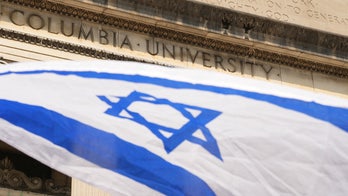Protesters took to the streets of California's state capitol after two reparations bills were shelved, while New York City approved a reparations program, making it the largest city in the US to do so.
California lawmakers' decision to shelve two reparations bills aimed at addressing the legacy of slavery in the state has drawn fierce backlash and led to protests at the state capitol.
The legislation, sponsored by Assemblywoman Shirley Weber and Senator Steven Bradford, would have established a task force to study and develop reparations proposals for African Americans in California. However, the bills failed to advance out of their respective committees, drawing criticism from activists and Black leaders.

California Reparations Bills Shelved, Sparks Protests
Protesters gathered outside the state capitol in Sacramento to voice their anger and disappointment, carrying signs that read "Justice Delayed is Justice Denied" and "Reparations Now." They argued that the shelving of the bills was a betrayal of the state's Black residents and a failure to confront the deep-seated history of racial injustice in California.
The state's decision stands in stark contrast to a recent move in New York City, where the city council unanimously passed a package of legislation to acknowledge and address the legacy of slavery and racial injustices. The measures include establishing a Truth, Healing, and Reconciliation Commission and a reparations task force.

California Reparations Bills Shelved, Sparks Protests
New York City has taken a significant step towards addressing its racist past and the ongoing impact of slavery by passing a reparations program, making it the largest city in the United States to do so.
The package of legislation, sponsored by Councilmembers Crystal Hudson and Farah Louis, includes the establishment of a municipal Truth, Healing, and Reconciliation process, a reparations study, informational signs at the city's first slave market, and a taskforce to consider creating a "freedom trail" commemorating abolitionist movement and Underground Railroad sites.

California Reparations Bills Shelved, Sparks Protests
The Truth, Healing, and Reconciliation Commission will focus on establishing facts about slavery in New York City and its ongoing legacies, protecting and acknowledging affected persons and communities, and recommending changes to government and institutions to prevent the perpetuation and recurrence of injustices from the legacy of slavery.
Councilwoman Hudson expressed her hope that the legislation will lead to tangible solutions to address the foundational cracks in the city's institutions, while Councilwoman Louis hailed it as a "crucial step towards justice and equity."

California Reparations Bills Shelved, Sparks Protests
However, the legislation has faced some opposition from a handful of councilmembers, including Minority Leader Joseph Borelli, who argued that reparations are unfair to those who did not own slaves and that he would rather move than pay for a harm he did not participate in.
Despite the opposition, the passage of the reparations program in New York City is a significant milestone in the fight for racial justice and a reminder of the ongoing need to confront the legacy of slavery in America.










